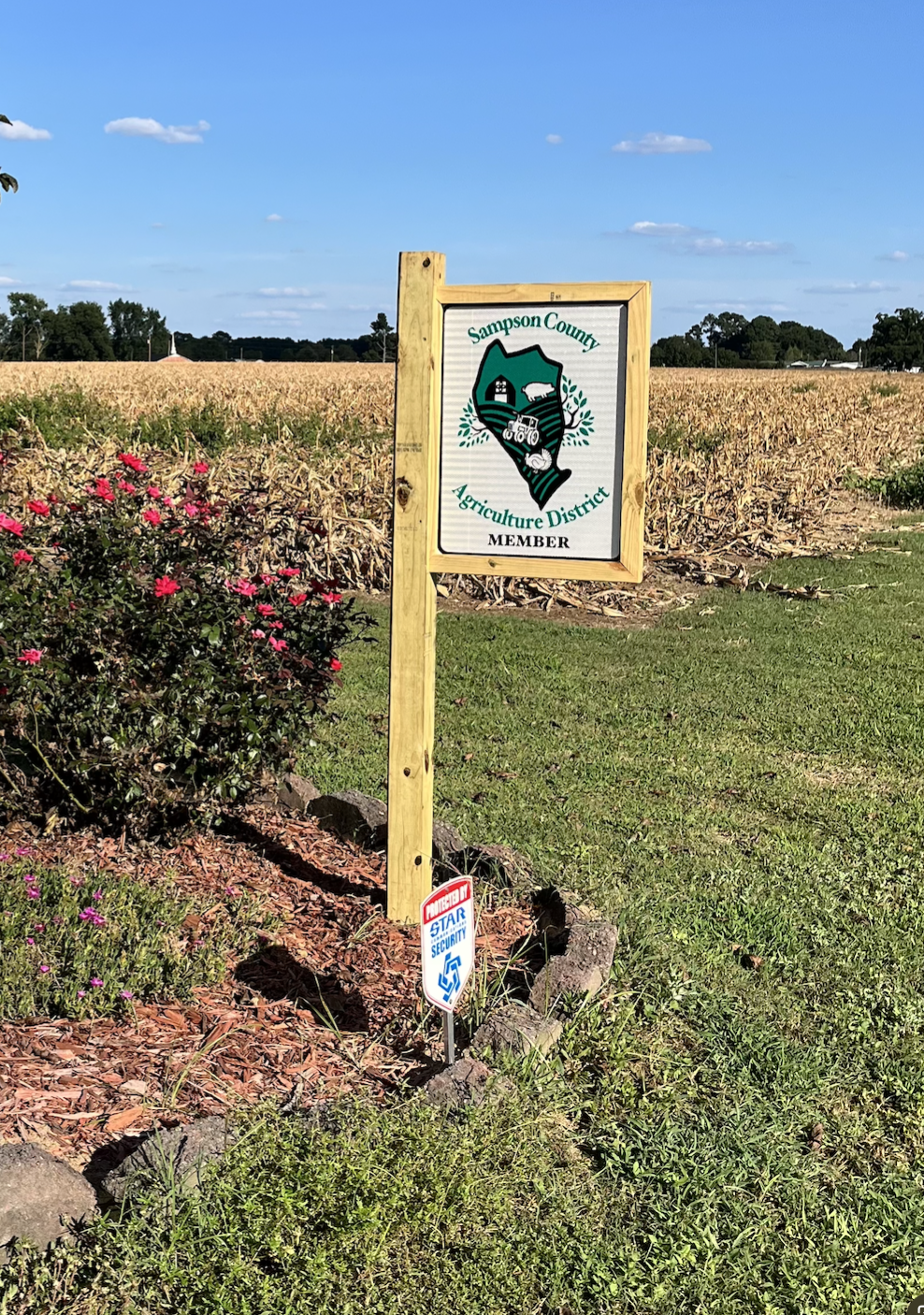Preserving Farmland in Sampson County
go.ncsu.edu/readext?1092539
en Español / em Português
El inglés es el idioma de control de esta página. En la medida en que haya algún conflicto entre la traducción al inglés y la traducción, el inglés prevalece.
Al hacer clic en el enlace de traducción se activa un servicio de traducción gratuito para convertir la página al español. Al igual que con cualquier traducción por Internet, la conversión no es sensible al contexto y puede que no traduzca el texto en su significado original. NC State Extension no garantiza la exactitud del texto traducido. Por favor, tenga en cuenta que algunas aplicaciones y/o servicios pueden no funcionar como se espera cuando se traducen.
Português
Inglês é o idioma de controle desta página. Na medida que haja algum conflito entre o texto original em Inglês e a tradução, o Inglês prevalece.
Ao clicar no link de tradução, um serviço gratuito de tradução será ativado para converter a página para o Português. Como em qualquer tradução pela internet, a conversão não é sensivel ao contexto e pode não ocorrer a tradução para o significado orginal. O serviço de Extensão da Carolina do Norte (NC State Extension) não garante a exatidão do texto traduzido. Por favor, observe que algumas funções ou serviços podem não funcionar como esperado após a tradução.
English
English is the controlling language of this page. To the extent there is any conflict between the English text and the translation, English controls.
Clicking on the translation link activates a free translation service to convert the page to Spanish. As with any Internet translation, the conversion is not context-sensitive and may not translate the text to its original meaning. NC State Extension does not guarantee the accuracy of the translated text. Please note that some applications and/or services may not function as expected when translated.
Collapse ▲Is Farmland Preservation important to you? I think we can all agree that agriculture is the heartbeat of Sampson County, and preserving farmland in the future will be a delicate balance with community and economic development. To support this effort, Extension is here to assist with updating enrollment records and distributing new signs to landowners enrolled in the Sampson County Voluntary Agricultural District program.
History on the program: The Farmland Preservation Program was established by the General Assembly of North Carolina, authorizing counties to establish programs to support and encourage the preservation of farmland – hence, the Voluntary Agricultural Districts Program. The statutory authority is found in Chapter 106, Article 61, of the NC General Statutes. In Sampson County, The Voluntary Agricultural District Program began in 2001, and is governed by an agricultural board, comprised of seven voting members, representing five agricultural districts across the county. Additionally, there are ex-officio representatives from each of the following agencies: Cooperative Extension, Register of Deeds, Tax Administration, Soil & Water, and the NC Forestry Service. The board is appointed by the Sampson County Board of Commissioners, and is responsible for approving applications for membership to each agricultural district.
What are the requirements of enrollment?
The farmland must meet the following minimum contiguous acres of qualified farmland or combined farms that meet this minimum acreage and are within a mile of each other: 5 acres of horticulture, 10 acres of cropland, or 20 acres of forestry. The land must be used for bona fide farming purposes, and enrolled in the farm present-use value taxation program. The land additionally must be certified as having soils which are favorable for major crops grown in the county, and which two-thirds of the land have been actively utilized for agricultural, horticultural, forestry, livestock, or wildlife. While enrolled, the property is then subject to a conservation agreement, in which the landowner agrees to “sustain, promote, and encourage agriculture in the district, and support protection against nuisance suits, undesired non-farm development, and other negative impacts on participating farms”.
What is the cost to become a member? A $25 enrollment fee covers a portion of the cost of one farm sign to post and designate the farm as being enrolled, and a recording fee of $26 is paid to the county Register of Deeds office. Once a farm is recorded, parcels are also identified in the VAD layer of the county GIS land records system. Additional farm signs may be purchased at a cost of $50 each. Please ask us about a limited time special incentive offered to NC Grange members, which covers the full cost of a framed sign and post.
What are benefits of enrollment in the program?
The program will help increase the awareness, identity, and pride of being part of the agricultural community and its way of life. Members will have increased protection from nuisance suits and other potential negative impacts on their farmland, and landowners will not be required to connect to the county water system or assessed charges for such, unless the farm chooses to connect to such services.
If you have farmland in Sampson County, are you enrolled? We have over 600 thousand acres in Sampson County, with approximately half of these acres in farm or forest land. For anyone interested in learning more about the program and becoming a member, please contact us at the N.C. Cooperative Extension, Sampson County Center at 910-592-7161 or stop by our office, located at 55 Agriculture Place, just off highway 421, one mile south of Clinton. Additional information can be found on our website.




